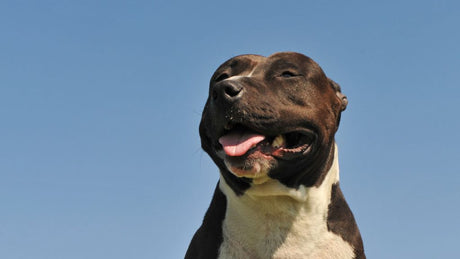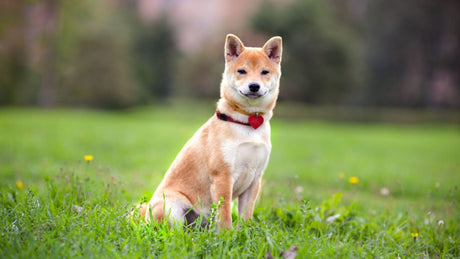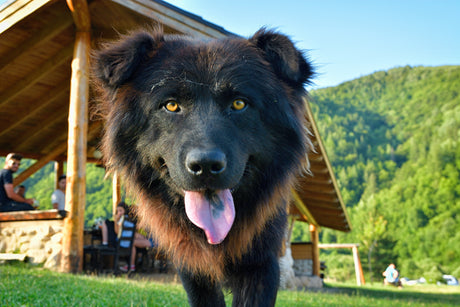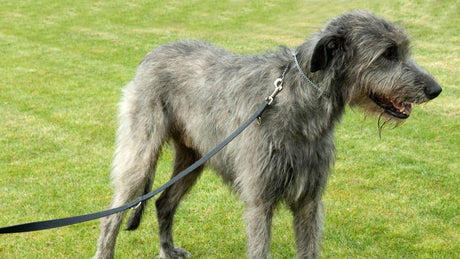We all want that when we open the door to a new member of the family, he or she can always be happy and healthy, and if possible, last forever. Normally, we want to give a good, very long and healthy life to that pet with whom we plan to give and receive love. To comply with this there are several things we must do; First of all, we must give
dog vaccinations , complying with the scheduled dates; secondly,
feed them correctly according to the type of pet they are and, finally, we must make sure to give them their
daily exercise quota that will allow them to always be healthy. This, of course, without leaving aside the affection and love they need. As you see, all this seems to be simple, but it is certainly quite a commitment. One of the main and first problems that arise is that many times, due to lack of knowledge, we fail to comply with these aspects.
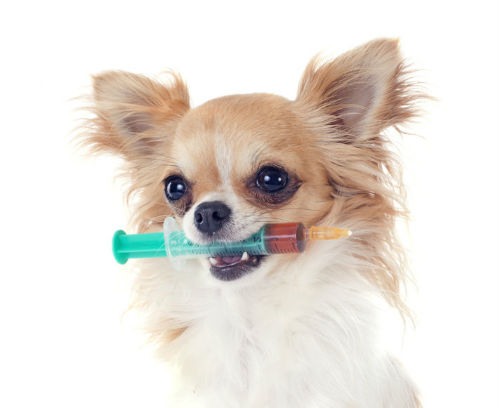
As for vaccines, this aspect should not be neglected, as it will cause major problems that can even make the animal suffer. Sometimes our carelessness may be due to lack of time, since our daily occupations distract us from following a
vaccine plan or schedule , which may cause us to skip it. Commitment to our pets deserves greater interest and time to dedicate. In addition to this, many times we do not really know
what functions vaccines have on the dog's health and how serious not giving them at the right time or postponing them can be. This time we will talk about it, about vaccines, about that first step that we must take for our pet, and how important it is for our dog to be healthy and happy for a long time.
The moment to meet our dog
Whether because we are going to acquire it from a professional breeder, we are going to buy it in a store or in fact we are going to adopt it from a shelter, it is very useful and necessary that they give us the
dog's vaccination record . This will greatly facilitate continuing with the vaccination process for the good health of our pet. It doesn't matter if the dog is still a puppy or is already older, there will always be various dog vaccines that it will need to have, some may even be of such importance that they can slow down the adoption or purchase process until they have been applied to the dog. And believe it or not, depending on the dog and the breed it owns, it can even be the difference between life or death in a puppy. So,
it is always important to demand the dog's vaccination record no matter how it comes into our lives.
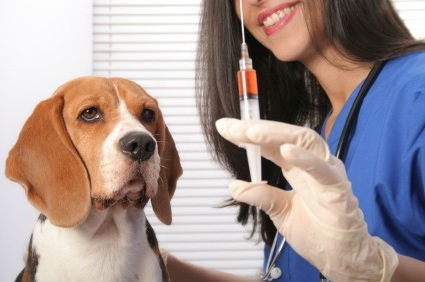
Puppies and vaccines
Much has been said about the importance of dog vaccines and how they can affect the dog's health. It is the puppies who have to deal with this process, from their first weeks, they should usually begin to receive them. It is the puppy's mothers who provide the first immunological defenses; through breastfeeding, they provide their children with antibodies that begin to work even within the first 24 hours of birth. Unfortunately, these defenses only last a short time and as the puppy gets used to the outside environment they gradually disappear from his system. Apart from the first immunological defenses, the mother also provides some parasites to the puppy through breastfeeding and the placenta, which is why
it is recommended that the puppy be dewormed before starting the vaccination process . After 6 weeks of birth, puppies begin to receive vaccines that will help them face the world. This proximity to its birth is due to the fact that a puppy should not be in contact with other dogs outside its litter before the first vaccination, since this can make it extremely sensitive to any bacteria or infection that a third party could carry. You also have to take into account when a puppy's teeth come in so that you can provide him with the best possible care.
Types of vaccines for dogs
There are different
types of vaccines for dogs which vary depending on the age of the puppy and the function they have on their health and well-being. Each of them represents a deficiency in the dog's immune system and some must be granted at different times in the dog's life. Some must be applied monthly or annually and others, on the contrary, are a once-in-a-lifetime issue. All of this will depend on its function and chemical composition.
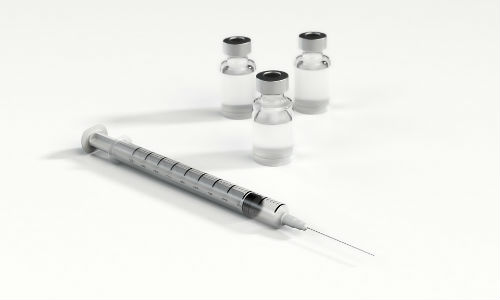
Mandatory vaccinations for dogs
Mandatory vaccines , as their name indicates, are those that are vital in the dog's life. These are provided while the dog is a puppy, and usually start after
6 weeks of birth . The vaccines for dogs that make up this group are the following:
-
Parvovirus : Parvovirus is a vaccine that helps prevent Canine Parvovirus, a disease that affects the intestines, causing diarrhea with the presence of blood in them. This vaccine is usually one of the first and main ones applied to puppies.
-
Distemper : As for Distemper, it is a disease that can even affect cats, it is highly dangerous as it affects the puppy's digestive, respiratory and nervous systems. It is a contagious disease, and can only be prevented with their respective vaccines, so, like Parvovirus, it is also usually given to the puppy in its first weeks.
-
Rabies : Previously the rabies virus was deeply rooted worldwide, although this has changed, there are still several regions where it is still active, so it is important to prevent. The rabies virus is spread through saliva, which can enter the dog's blood system through a bite, and can affect its nervous system. It is not recommended to apply it while the dog is a puppy, since the correct absorption of its components is not guaranteed.
Optional Dog Vaccines
Just as there are mandatory vaccines, there are also those that are more of an option, since one could say, they go according to the veterinarian's recommendations according to what he considers necessary for the dog according to the breed and the place in which it is located. it unfolds.
Optional vaccines are commonly administered annually, and there is the possibility that these are implemented through the modality of cocktails or polyvalents, which consist of various vaccines for dogs mixed into one, which serve to prevent the appearance of various diseases. diseases such as:
Leptospirosis, Canine Hepatitis, ParaInfluenza, Lyme, Kennel Cough or
Coronavirus .
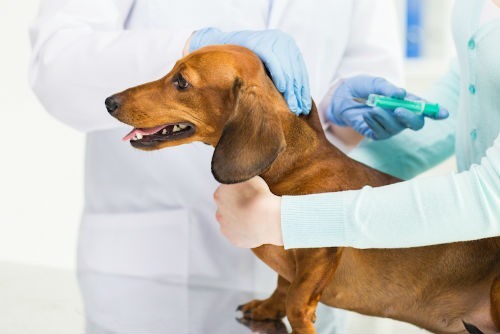
Multipurpose Vaccines
There are various types of multipurpose vaccines, these are classified according to their main functions or components. Among the most recognized are the following:
-
Pentavalent : Contains among its components the vaccine for distemper, hepatitis, kennel cough, parvovirus and parainfluenza.
-
Hexavalent : Contains all of the above, plus the leptosipirosis vaccine and another strain or population of parvovirus.
-
Octovalent : It has the previous vaccines in their components plus, other strains of leptosipirosis, parvovirus and parainfluenza, and also the coronavirus vaccine.
These types of vaccines should be administered to the dog when it is bigger and stronger, around its first year.
Other types of dog vaccines
There are currently some vaccines for dogs, which, although they are not strictly necessary or compromise their health, still greatly facilitate the dog's health and lifestyle. These can be the following:
-
Bardotella : They are used to prevent a disease of the same name, which attacks the respiratory system. It has several side effects and has therefore caused much debate among veterinary communities.
-
Against Tick and Flea : this type of vaccine for dogs is in fact very controversial, many veterinarians insist that it is not really a vaccine, but a medicine. Even so, it can be of great importance, and should be placed annually depending on its quality.
Average Vaccination Plan
As we already know, a few weeks after birth is when we must begin to administer the first mandatory vaccines, in order to make sure that the puppy can create the respective antibodies.

The administration of these vaccines usually has an average schedule, which may vary depending on some consideration taken by the veterinarian.
Vaccines for dogs are to promote and guarantee the health of whoever is administered, whether animal or human. Even so, these are still chemical compounds that enter the bloodstream, so on some occasions one or another consequence may occur, which is mostly derived from the body's reaction.
Side effects of dog vaccines
If any adverse effects arise after applying a vaccine to a dog, these are normally mild, although they depend on the age of the dog. The more puppies there are, the higher the percentage they have of appearing. In any case, these side effects, especially in mandatory vaccines, are not usually very serious; This is because before applying any vaccine to the dog, they have been previously tested and tested. So for the most part, these are really good for the dog. Likewise, here are some of the most common side effects:
-
Apathy : It is normal for the dog to distance himself a little from his master in a reaction of reproach for having put him through great stress.
-
Drowsiness : The dog may feel some type of tiredness and even need to sleep a little.
-
Gastrointestinal disorders : Some vaccines can cause stomach pain, diarrhea and even vomiting in dogs, which can influence their appetite.
-
Respiratory problems : On some occasions, the placement of a vaccine can cause coughing, sneezing or a runny nose. In fact, it can be relatively common for you to experience the flu.
-
Swelling : Some type of lump may form around where the vaccine was applied after receiving the vaccine, this is because the liquid has not yet spread. This can be a fairly common effect. Avoid scratching to also prevent other disorders that may arise such as the appearance of dandruff due to stress or dermatitis .
-
Aphalaxia : This is perhaps one of the most serious effects that can arise when vaccinating a dog and consists of a cluster of afflictions that vary between swelling of the throat or muzzle that prevents it from breathing normally, weak pulse, redness of the skin, diarrhea or vomiting. In this case, we must be very careful and take him to the vet as soon as possible.

Average Dog Vaccine Prices
In terms of costs, what a dog owner spends on dog vaccines depends on the doses supplied, which in turn depend on the weight and volume of the dog. As the dog gets bigger, the dose is higher. That is why it is necessary that before administering vaccines to the dog, it is consulted by the veterinarian, in this way inconveniences are avoided. You can consult your veterinarian if vaccines affect other breeds differently, such as the Andalusian buzzard or the Spanish Alano breed. If we delve into
the prices of vaccines , it is necessary to indicate that each price varies according to the country or region, in addition to the quality or brand of the vaccine and, of course, the type of vaccine it is. In the case of Spain, prices range between:
- Heptavalent Vaccine : Around 40 and 50 euros .
- Trivalent Vaccine : They cost an estimated between 30 and 40 euros .
- Rabies Vaccine : They usually cost between 20 and 30 euros .








